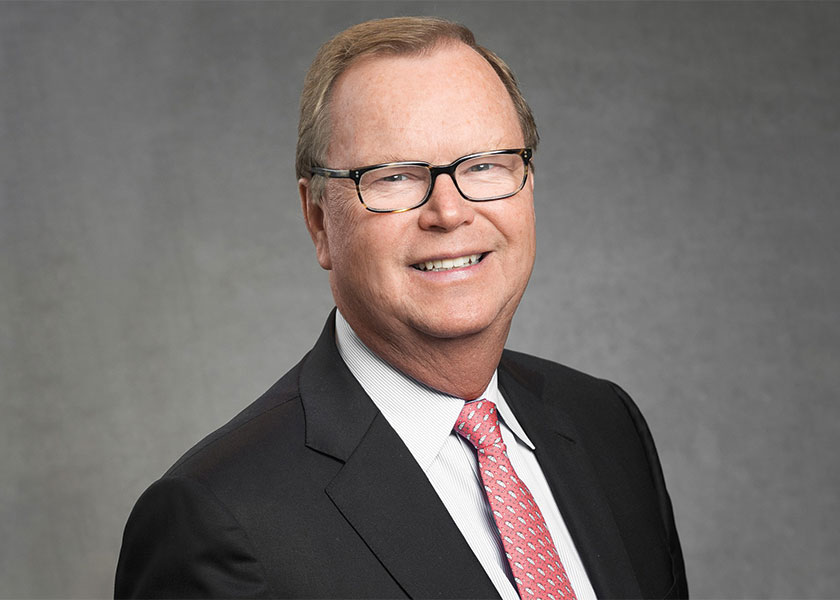 Class Notes
Class NotesOpening the Way to a Future in Engineering
Engineering Tomorrow founder Bill Woodburn helps underserved high school students discover their potential for a career in engineering by introducing them to STEM subjects.

Bill Woodburn (MS ’75) grew up in a lower-income area of Queens, New York, where higher education seemed a world away.
“I had two great parents, but we didn’t have any money,” he remembers. “No one went to college in my family. We didn’t have any discussions about academics or careers growing up; we were pretty much just living day to day.”
A basketball coach noticed that Woodburn excelled in math and science and introduced him to the United States Merchant Marine Academy. That’s when Woodburn began to see higher education as an option. “There were two curriculums—engineering and marine science,” he says. “I thought with my math and science interests, engineering sounded better. So, it was all luck. It was a matter of the stars and moon aligning.”
Woodburn went on to earn a master’s degree in environmental engineering at Northwestern. Recognizing how fortunate he was to get a great education despite his circumstances growing up, he gives back by helping students from lower-income neighborhoods and underrepresented groups discover engineering. In 2014, he founded Engineering Tomorrow, a nonprofit organization that introduces high school students to engineering and other STEM careers.
Engineering Tomorrow provides hands-on instruction, virtual labs, and mentorship to students, teachers, and schools at no cost. What began with Woodburn teaching water purification experiments in school gyms has scaled rapidly: 400,000 students are expected to participate in virtual labs in every state in the country this year.
“There’s a lot of talent that needs some direction, some mentorship, some idea of what’s out there,” he says. “It’s good for America’s competitiveness to have more engineers and to increase diversity in the field, and it’s good for these kids to have a chance in life.”

Encouraging engineering thinking
The labs have real-world applications, including a biomedical engineering lab that uses phototherapy to address Grover’s disease, a dermatological condition that causes rashes.
After Woodburn contracted the disease and received ineffective treatments, he studied research on improving the immune system using specific wavelengths of sunlight. He designed a device to simulate a wavelength of sunlight that enhances immune response levels and treats the disease’s symptoms.
Woodburn patented the process, and clinical research at Northwestern Memorial Hospital confirmed successful results in an initial trial. “I was able to address my skin condition by following the principles of engineering,” he says. Now the process he went through is part of the Engineering Tomorrow curriculum.
Woodburn hopes Engineering Tomorrow will help create a diverse workforce for solving the engineering challenges of the future. He wants to give students the mentorship he lacked by showing them how creative the field of engineering can be and the tremendous impact it can have.
“It’s a rewarding profession that I just love,” he shares. “It opened up so many opportunities for me. That’s why I founded Engineering Tomorrow, to give others the same opportunities.”
Building a remarkable career
A former McCormick Advisory Council member, Woodburn appreciates the advantage Northwestern gave him in his career. “I had a fantastic graduate engineering program. It was tough and demanding, but I liked it,” he says.
Woodburn has applied the engineering lessons he learned at Northwestern throughout his career. He started as an engineer with Union Carbide Corporation before joining McKinsey & Company, where he worked on transportation, refinery, and natural gas projects. He was then recruited by General Electric, where he served in different locations around the world before becoming president and CEO of GE Infrastructure, overseeing key acquisitions for the company’s entry into the water technology business. In 2023, his career and contributions to the field were honored with his election to the National Academy of Engineering.
Sticking to the fundamentals
After 23 years with GE, at a time Woodburn had planned to retire, he was introduced to several people involved in establishing Global Infrastructure Partners, an independent infrastructure investment firm. Founded in 2006, GIP manages approximately $100 billion on behalf of its global investors, specializing in the energy, transpor- tation, and water and waste sectors. As founding and operating partner, Woodburn optimizes processes and streamlines operations for the businesses GIP runs.
The firm is transitioning into a new phase with a $12.5 billion deal for BlackRock to purchase GIP, making it the world’s second-largest infrastructure investor. What began as an interesting opportunity became a major success, thanks in part to Woodburn’s
engineering expertise.
“I was very focused on the efficiency of capital spending, cycle time, and the speed at which we executed,” he says. “These are engineering techniques that are all about optimizing processes, whether it’s coordinating arriving and departing aircraft and moving people through security and immigration or moving containers on and off ships and loading them onto trucks. I have stuck to the fundamental principles of engineering and physics, and I’ve been analytical the whole way.”
